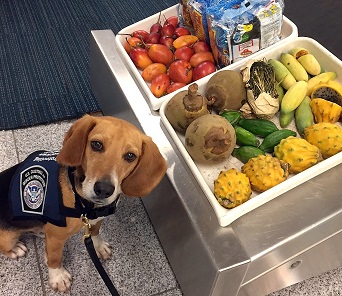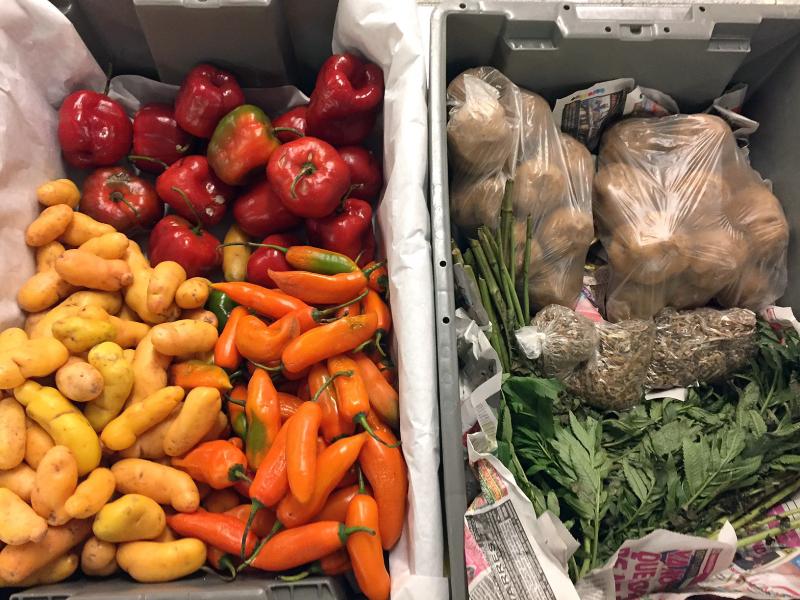ATLANTA – U.S. Customs and Border Protection (CBP) agriculture specialists and canine “Murray” at Hartsfield-Jackson Atlanta International Airport (ATL) teamed up to intercept more than 46 pounds of exotic fruit, peppers and beef found in checked bags last week.

"Murray" with his recent intercept of
prohibited food.
CBP agriculture specialists working with Murray, CBP’s newest “Beagle Brigade” canine member, alerted to suitcases belonging to travelers who arrived on different flights from Ecuador and Peru. During the secondary inspection, agriculture specialist found potatoes, chili peppers, tomatoes, banana passion fruits, yellow Dragon fruits and beef. All food items are agriculture products prohibited in passenger baggage.
“Customs and Border Protection’s agriculture inspection and protection mission is a critical trade enforcement priority,” said Carey Davis, CBP Port Director for the Area Port of Atlanta. “CBP’s agriculture specialists and our Beagle Brigade work side by side to detect and intercept prohibited food items, invasive weed seeds and insects, and plant and animal diseases that pose a significant threat to U.S. agricultural industries and our nation’s economy.”
CBP canine Murray, who sniffed out the prohibited items is the newest member to join the CBP agriculture mission at ATL airport where on average, nearly fifteen thousand international travelers a day are processed. Alcovy Pet Rescue of nearby Winder, Ga., donated Murray, a 3-year-old beagle, to CBP. He recently graduated from the National Detector Dog Training Center prior to his duties at the airport.

intercepted by CBP K9 "Murray."
The seized food products were destroyed and the travelers were not penalized as they declared the agriculture products to CBP.
Travelers can check the general admissibility of fruits and vegetables by consulting the Animal and Plant Health Inspection Service (APHIS) website or the Fruits and Vegetables Import Requirements (FAVIR) database.
CBP also provides information on the importation of plants and plant products.
On a typical day in fiscal year 2016, CBP agriculture specialists discovered 404 pests at U.S. ports of entry and 4,638 materials for quarantine.

